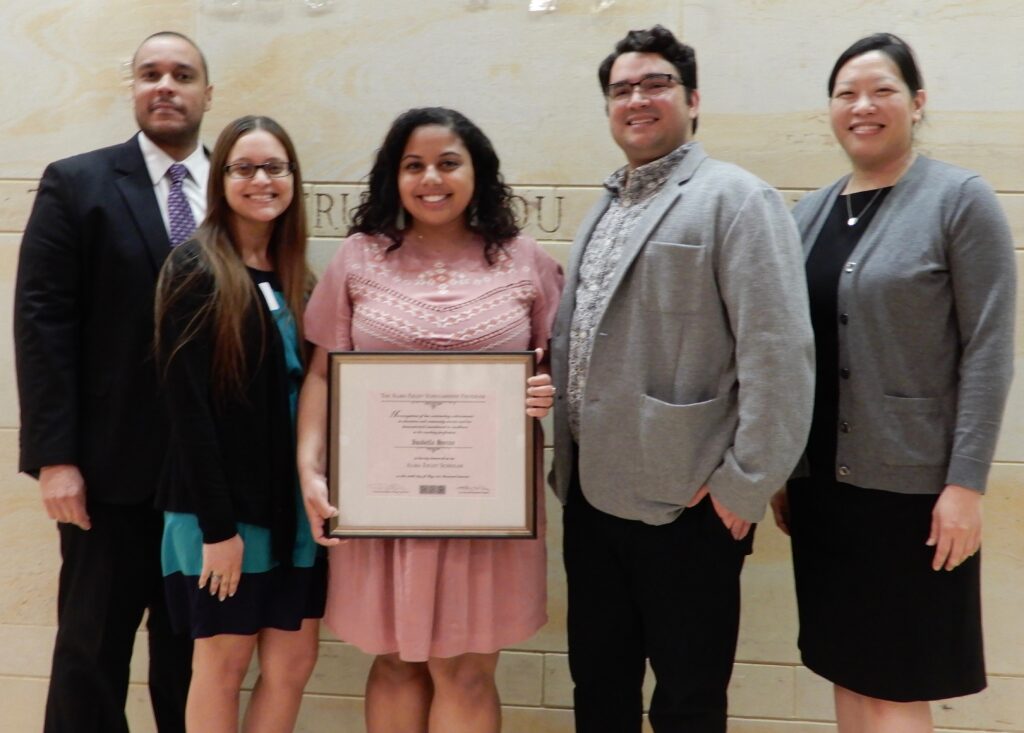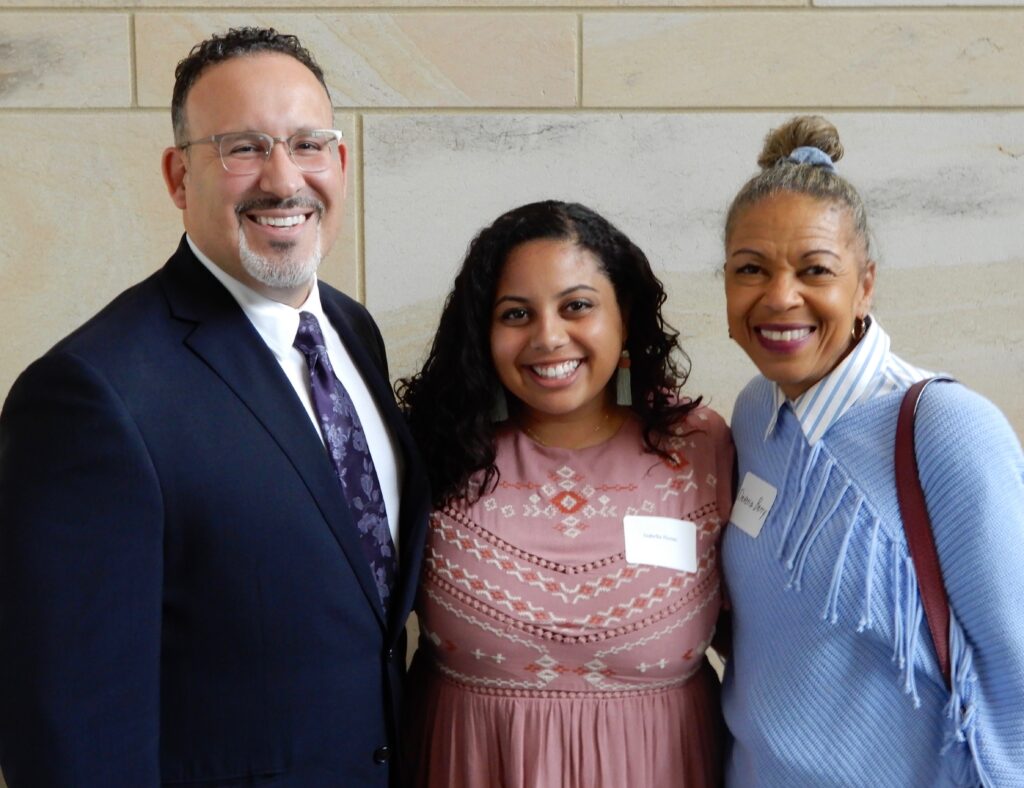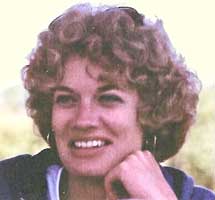Isabella “Ivy” Horan was honored as the 30thAlma Exley Scholar at a reception May 9 at the Mark Twain House and Museum in Hartford.

Ms. Horan, a graduate of Duxbury (Mass.) High School, is an elementary education major in the honors program. She received her bachelor’s degree on Sunday, May 12, and plans to return to UConn in September to pursue her master’s degree.
Guest speaker was Theodore Martinez, whom we honored last year. This year he has been teaching at the International Magnet School for Global Leadership in South Windsor. He is also an adjunct professor at Asnuntuck College, teaching psychology at a state prison.
Leadership in Research and the Teacher-Education Program
Prof. Dorothea Anagnostopoulos of UConn’s Neag School of Education introduced Ms. Horan. “Ivy is, simply put, remarkable,” she said. “Before I had the pleasure of meeting and working with Ivy, I had already heard about her work with the Massachusetts Partnership for Diversity in Education that supports culturally responsive teaching as a way to improve educational opportunities for students of color.
“Over the past two years, I’ve had the fortune of working with Ivy when she served as the president of our Teacher Education Student Association. Ivy gave new life to that organization. Under Ivy’s leadership, TESA initiated community-building activities for our students and faculty and held forums on important educational issues, including a forum on how teachers can build collegial relationships across their own racial differences to support student learning and teachers’ own professional development. Ivy has served as the voice of our teacher education students and has worked with faculty and leaders to improve our program.
“I’ve also been fortunate to serve as Ivy’s faculty advisor for her honors research study. Ivy’s study is one of only a few studies of beginning teachers of color. It identifies the conditions that help these teachers stay in teaching.
“Ivy is deeply committed to improving education for students of color who have historically been mis-served by our nation’s schools. Ivy is keenly aware that doing this requires making sure that schools support teachers of color and provide them with both learning and leadership opportunities so that they cannot only thrive as teachers but transform teaching and our schools to better serve all of our students.
“I fully expect that over the next few years, Ivy will become not only a beloved teacher, but also a leader in the schools where she teaches and in the broader educational field. She will be a force to reckon with as she works to improve schools for and with her students and their communities.”
Research Into Diversity in Education
In accepting the award, Ms. Horan referred to her research into diversity issues. “Through these studies,” she said, “I learned how important it is to recognize diversity in education. It’s important to have diverse teachers in the profession, especially as the population of culturally, racially and linguistically diverse students is growing.
“Students of color need teachers of color to look up to,” she said. “I didn’t when I was growing up. The town that I’m from in Massachusetts is 99 percent white. Growing up in that setting was hard for me because I never saw a teacher of color, so I didn’t think I could be where I am today. It’s really important that we support teachers of color to help keep them I the profession — so that not only students of color can look up to them, but so that students in the majority can look up to them as well.”

The Importance of Advocating for Educational Equity
Mr. Martinez said that he was impressed with the guest of honor’s accomplishments. “Addressing educational equity is not an easy feat, but incredibly important,” he said. “As teachers of color, it often falls on us to be the voice of experience for our students. I’m happy to learn she has already found her voice and is already advocating for change.”
In teaching in a prison, Mr. Martinez is working with students who, as he said, “have found themselves on the wrong end of the fabled school-to-prison pipeline.”
He noted that 12 of his 15 students in the prison are persons of color. “While the thought of so many minority students pursuing a college degree fills me with pride,” he said, “their overrepresentation in this particular class, in this particular setting troubles me.
“When I leave the prison on Monday night, and enter my classroom of third graders on Tuesday morning, I’m hit with the same thought: What can I do to make sure these students don’t end up in my Monday night class? How can I help them?”
Among his other observations, Mr. Martinez said, “Students of color perform better when they see someone who looks like them. They achieve more when they have someone who speaks like them, who understands them. I’m sure my fellow recipients currently working in the field can share their own personal stories regarding the truth in this statement.”
Read his complete remarks here.
The View From the Foundation
Also speaking was David Obedzinski, president of the Community Foundation of Greater New Britain, which manages the scholarship program.
“Alma asked that this scholarship take root,” he said. “It was her wish, and it represents her ongoing and lasting work.
“Alma is here with us today. She is with each and every Alma Exley Scholarship Recipient. She’s with them as they hear the good news of their award, as they study and learn how they can make a difference, as they discover how they can apply that knowledge, as they think about how they can inspire others as Alma inspires us today, and she is with us as we gather in settings such as this.
“The Alma Exley Scholarship and all that it represents is the essence of what makes a community foundation effective in our communities.”
Read his full remarks here.
